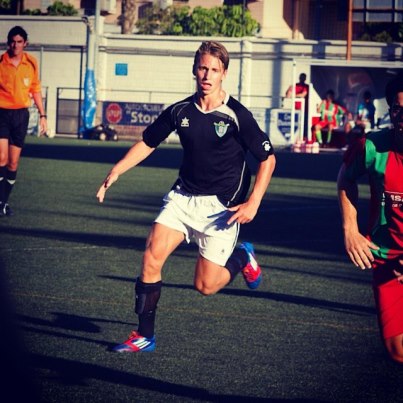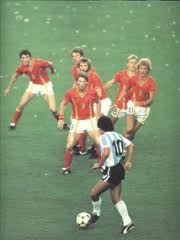I’m delighted to announce that I will be holding an event in Dublin 15 on Monday 02 March 8pm with Uefa A Coach Mark O’Sullivan @markstkhlm AIK: Player+coach dev+mentor. District Coach Educator. Coach Ed consult. PhD research.
This is a complimentary event (VENUE: St Mochtas Parish Centre next door to Castleknock Celtic FC), I only ask you to offer a gratuity (Optional). If you are interested in attending or sponsoring please email Antonio at coach@thecoachdiary.com
Mark O Sullivan is a UEFA A licensed coach, coach educator and PhD researcher based in Stockholm Sweden where he works with AIK youth football. While football is his main sport, he has also consulted on coaching and coach education in Basketball, Floorball, Golf, Ice Hockey, ice-skating and Tennis.
Mark is also part of the sports research team at Sheffield Hallam University through which he has published various research papers.
Mark works at Swedish premier league club AIK Solna as head of development for 8-12 yrs. He actively coaches, educates coaches and parents and carries out his research work in to designing learning environments in child-youth football. As part of his research together with some colleagues he has set up Scandanavia’s first Research and Development department that is embedded in a football club. Through this department Mark and his colleagues are applying a constraint’s led approach encouraging the design of practice around the principles of nonlinear pedagogy. The first part of a collaboration between AIK Research and Development Department and FC Barcelona’s Methodology Department entitled Ecological Theories, Nonlinear practice and Creative Collaboration at AIK Football Club was presented at the Camp Nou in 2017 and published in the Frontiers of Psychology Journal.
Mark has consulted for the Canadian Soccer Association on coach education helping build their new evidence-based Children’s license (launched 2019) and also for the British Columbia Soccer Association on disabled football.
Mark’s blog “Footblogball” is his learning space where he tries to bridge the practice-theory gap writing on pedagogy, training design and the complexity of youth development in sport https://footblogball.wordpress.com
Mark O’Sullivan
Recent Presentations
- Ontario Soccer Summit. A Constraints Led Approach to youth football- Theoretical presentation and practical session (Toronto Canada). 2- 4 March 2018.
- Nova Scotia Soccer Association. A Constraints Led Approach to youth football- Theoretical presentation and practical session (Halifax Canada). 6 -7th March 2018.
- Movement and Skill Acquisition Conference Cork Institute of Technology. Presentation on CLA and Nonlinear Pedagogy in practice (Cork, Ireland). 6-7th April 2018.
- Theory & Practice: Implementing principles of nonlinear pedagogy in youth football (SaltLake City, USA) 18-21st July 2018.
- Skill Acquisition Symposium – How contemporary Skill Acquisition research can enhance innovative practice. Rotherham New York Stadium. (Rotherham UK). 10-11th October 2018.
- Värmlandsidrotten Sports Symposium – Contemporary Skill Acquisition research in Child.
- Youth Sport (Sunne, Sweden). 20th October 2018.
- Stockholm Sports University (GIH). A constraints Led Approach in Football. 14th November 2018.
- Örebro Sports Symposium Örebro Sweden (Örebro Sweden). Presentation on AIK Form of Life. 8th December 2018.
- SPARC Symposium Skill Acquisition and Talent Development in Sport (Sheffield UK). Presentation on AIK Form of Life. 12th December 2018.
- PGA Workshop Skill Acquisition and Talent Development in Sport (Sheffield UK). Presentation on AIK Form of Life. 13th December 2018.
- Swedish Sports Federation National Conference – An Ecological Approach to Learning and Development March 15th 2019
- Swedish Tennis Federation National Conference -An Ecological Approach to Learning and Development – April 5th 2019
- Undergraduates Sport and Physical Activity Research Day, Sheffield Hallam University UK – An Ecological Approach to Learning and Development –May 7th 2019
- BK Skjold Copenhagen, Denmark – Theory and Practice: An Ecological Approach to Learning and Development –June 30th – July 5th 2019
- North Toronto Soccer Club, Toronto, Canada – An Ecological Approach to Learning and Development –July 17th 2019
- World Ice Hockey Seminar, Toronto, Canada – An Ecological Approach to Learning and Development July 19th 2019
- Canada Soccer Association Children’s license – Theory and Practice– Halifax Nova Scotia, Canada 2019- July 22-25th
- Club 30 Salt Lake City, Utah, USA– Applying theory in practice (Practical workshop for 132 coaches) -July 29th
- Wasatch Soccer Club Salt Lake City, Utah, USA – Coach and player education – An Ecological Approach to Learning and Development (presentation for 220 parents and coaches)- July 30Th
- MetaSports Soccer Club Salt Lake City, Utah, USA – Coach and player education – An Ecological Approach to Learning and Development (theory and practice)- July 31st– Aug 4th
Upcoming events:
- Sheffield Hallam University – Transforming Lives Through Skill Acquisition – Sept 11th
- Gothenborg Sweden – AIK: An ecological Approach to player development – Dunnross Stiftelse AGM Nov 18th
- Villnius Lithuania – Modern trends in Youth Football – An Ecological Approach to player development – NOV 20TH
- Skövde Sweden – Swedish football conference – An Ecological Approach to player development –11th February
- Copenhagen Denmark – Copenhagen Football Association – An Ecological Approach to player development –11th February
- Swedish Sports University, Stockholm (GIH) – Sports degree course guest speaker: Implementing a Constraints led Approach in youth football – 29th March
FOR MORE ON THE DUBLIN EVENT EMAIL OR CONTACT ANTONIO 0872183837
DATE: MONDAY 02ND 2020
VENUE: St Mochtas Parish Centre next door to Castleknock Celtic FC)
TIME: 20.05PM
-End
I always like to hear your opinions and views. If you feel you have something to say, please comment below or email me coach@thecoachdiary.com If, you don’t have anything to add then please forward this on to a friend. As always, thanks for reading.
I’m also on twitter @Coachdiary and @LetTheKidPlay




